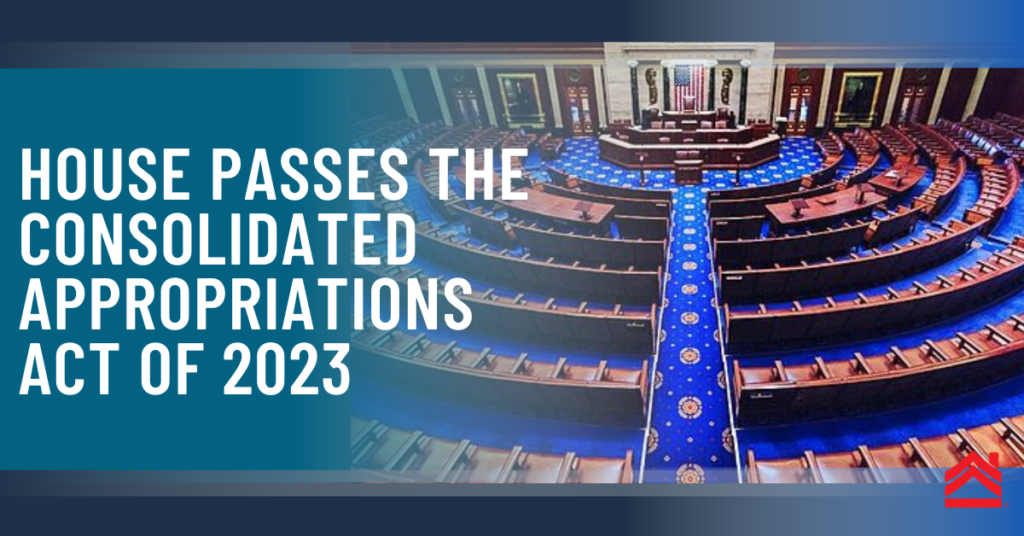
12|23|22
Today, the House of Representatives passed H.R. 2617, the Consolidated Appropriations Act, of 2023. The bill contains many provisions directly impacting veterans experiencing homelessness, and the providers who serve them.
Topline funding for veteran-specific programs are as follows:
| Dollar Amount | Funding Item |
| $750,167,000 | VA Supportive Services for Veterans Families (SSVF) Program |
| $557,921,000 | VA HUD-VASH case management |
| $50,000,000 | HUD New HUD-VASH vouchers |
| Up to $7,500,000 | HUD Tribal HUD-VASH voucher renewals |
| $276,368,000 | VA Grant and Per Diem (GPD) programs |
| $65,500,000 | Department of Labor Homeless Veterans Reintegration Program (HVRP) |
Of note, the bill also:
- Directs VA to work with public housing authorities and local organizations to assist aging homeless veterans in accessing existing housing and supportive services;
- Removes the matching grants requirement for VA capital grants for at least five years following enactment of this Act, at which point the Secretary will have the option to require matching funds up to 30% of the cost of a project, and removes real property or equipment disposition requirements for past, present, and future grantees;
- Makes the Homeless Veterans Reintegration Program (HVRP) offered through the Department of Labor permanent and sets a minimum appropriation level for the program at $60,000,000;
- Requires Department of Housing and Urban Development-Department of Veterans Affairs (HUD-VASH) case management contracting recipients to have experience providing those services;
- Requires VA to provide training and technical assistance, primarily for the purpose of sharing best practices, to entities that provide services to veterans at risk of, experiencing, or transitioning out of homelessness;
- Requires VA to establish a five-year, five-site pilot program through which organizations providing transitional housing to veterans can apply for grants to fund the hiring of on-site medical professionals and their supplies. The program must be distributed equitably across geographic regions, and must prioritize rural, tribal, and elderly veteran communities;
- Requires VA to establish a five-year, five-site pilot program providing grants to substance use disorder recovery programs in the community for those programs to provide their services to veterans who are homeless, were previously homeless and are transitioning to permanent housing, or are at risk of becoming homeless; and
- Makes a number of other changes related to veterans’ benefits and health programs.
The full text is available here. The bill will be sent to the President for signature.
Additional analysis is available from NCHV’s partners here:
NAEH https://endhomelessness.org/blog/what-can-fy23-funding-do-for-homelessness/
HAC https://ruralhome.org/housing-assistance-council-statement-on-fy-2023-omnibus-bill/

